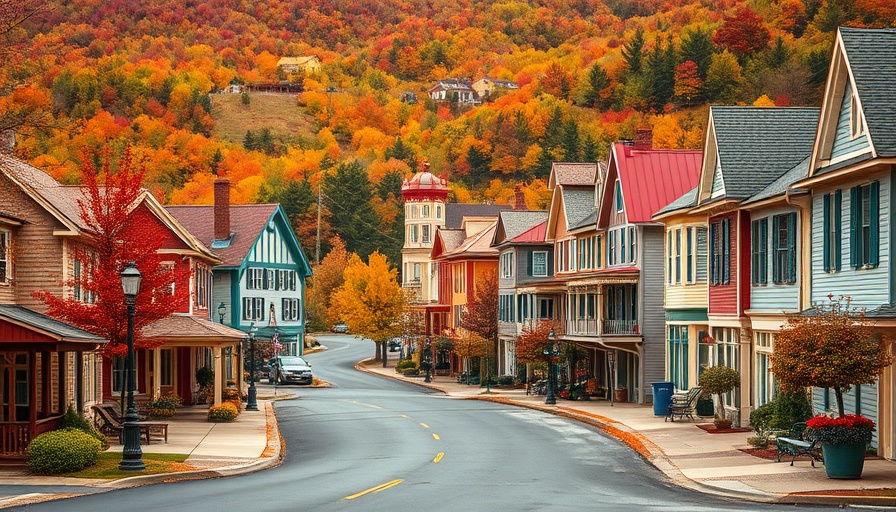
Discover the Unique Landscape of West Virginia Living
For those contemplating the idea of settling down in a new location, West Virginia offers a unique blend of natural beauty and cultural charm. Nestled in the Appalachian Mountains, the state stands out for its stunning landscapes and rich history. This article explores ten pros and cons of living in West Virginia, helping prospective residents make informed decisions about calling this picturesque state home.
The Pros: Why West Virginia Shines
West Virginia boasts several attractive features for potential residents:
1. Affordable Housing Options
As highlighted in recent real estate trends, West Virginia's housing market remains appealing due to lower median home prices—averaging around $247,000, making it easier for first-time homebuyers and families to invest in property. With accessible homes for sale, including options on platforms like Redfin and Zillow, both purchasing and renting are economically viable choices.
2. Tight-Knit Communities
The state's smaller towns cultivate a strong sense of community. Residents often know their neighbors, sharing a camaraderie that can be hard to find in larger urban settings. This social connection enhances the quality of life and enriches local culture.
3. Breathtaking Outdoor Recreation
For lovers of the outdoors, West Virginia represents paradise. With majestic mountains and sprawling forests, activities such as hiking, rafting, and biking are staples across the state. Popular spots like the New River Gorge not only attract tourists but also provide endless opportunities for outdoor adventures.
4. Rich Cultural Heritage
The state’s Appalachian roots offer a unique cultural experience, with local festivals, music, and traditions that celebrate its deep history. This rich heritage shapes the identity of its residents, creating a strong local pride.
The Cons: Challenges of West Virginia Living
While attractive, living in West Virginia comes with its challenges:
1. Limited Economic Opportunities
A notable downside is the limitation in job prospects, particularly in certain regions. While West Virginia has made strides in diversifying its economy, some areas still heavily depend on traditional industries, leading to fewer career options for new residents.
2. Spread-Out Amenities
Residents might notice that amenities are more spread out than in metropolitan areas. Basic services, shopping, and specialized healthcare might require longer drives, which can be inconvenient for those accustomed to city facilities.
3. Weather Challenges
Another downside can be the state’s weather—West Virginia experiences a range of conditions, with cold winters and humid summers. Such climate factors may shift the lifestyle preferences of potential residents.
4. Geographic Isolation
Although offering peace and quiet, West Virginia's mountainous terrain can lead to feelings of isolation, particularly for those who thrive in bustling cities. Prospective residents should weigh their comfort level with this aspect of rural life.
Making the Deciding Choice
In conclusion, while West Virginia presents unique advantages—like an affordable real estate market, strong social bonds, and an incredible outdoor lifestyle—it also poses significant challenges that deserve thoughtful consideration. For those ready to embrace a slower-paced life enriched with natural beauty and local culture, West Virginia offers an inviting opportunity. As you explore your options, consider reaching out to a trusted real estate agent to understand the market and find properties that best suit your needs.
For further insights into real estate choices in West Virginia, whether you’re looking for foreclosure listings or new construction homes, engaging with local real estate websites, and attending open houses can provide additional clarity.
 Add Row
Add Row  Add
Add 




Write A Comment